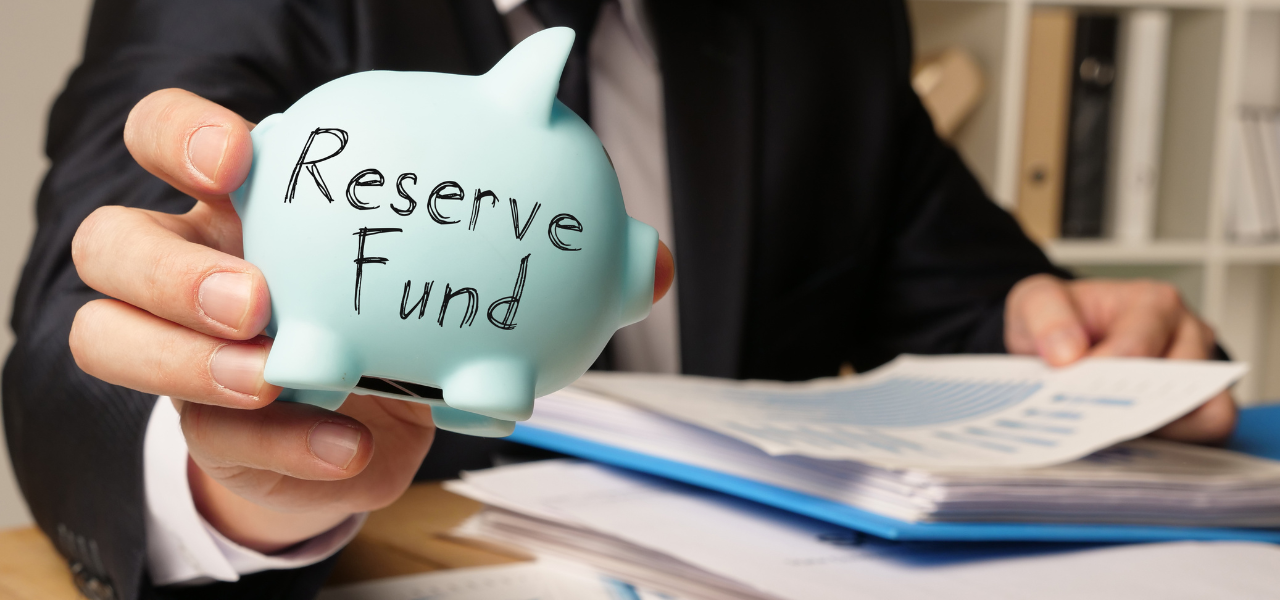A body corporate's reserve fund refers to a designated pool of money set aside by a collective ownership entity, to cover future expenses related to maintenance, repairs, and replacement of common property or shared assets. The reserve fund is typically funded by contributions from the individual owners in the property, usually through levies, and is used to ensure the long-term financial stability of the collective property and community.
As per the law, a body corporate must maintain a separate reserve fund account. This can be a trust account managed by the managing agent, generating interest, or an account opened by the body corporate, also earning interest.
The fund is established by contributions from the owners of the individual units in the property, usually through levies or special assessments.
The purpose of a reserve fund is to ensure that there are adequate funds available to cover the costs of major repairs or replacements that may arise in the future, such as roof repairs, repainting of the building, or replacement of lifts or other mechanical equipment. By having a reserve fund, the body corporate can avoid the need for sudden and significant special levies or loans, which can be costly for individual unit owners. The fund is typically managed by the body corporate’s trustees, and its use is governed by specific rules and regulations.
A body corporate is a legal entity created to manage and administer a multi-unit property or development. The body corporate represents the collective ownership and interests of all individual unit owners within the property. They are responsible for overseeing the maintenance, operation, and management of common areas and shared facilities, such as lobbies, parking lots, gardens, and amenities.
The body corporate plays a crucial role in enforcing bylaws, collecting fees, organizing meetings, and making decisions that affect the overall well-being and functioning of the property. Through the body corporate, unit owners can participate in decision-making processes, contribute to the upkeep of their property, and ensure a harmonious living environment for all residents. One of the crucial factors in establishing this well-functioning environment is creating a comprehensive 10-year plan.
The 10-year maintenance, repair and replacement plan must include a comprehensive list of the major capital items, listing each item’s present condition along with the future (estimated) maintenance cost and timing. The objective of the plan is to ensure that these items, that are often costly to replace, are included in the budget for routine maintenance to ensure an extended lifespan and use to the scheme.
A body corporate's reserve fund is a critical component of its financial management. It works by setting aside funds from the individual unit owners' contributions in a form of levies to cover future expenses related to maintaining and repairing common property or shared infrastructure within the property. The fund is established based on the body corporate's specific needs and requirements, and its size is determined by the expected costs of future repairs and replacements.
The reserve fund is managed by the body corporate committee and is governed by specific rules and regulations. The committee is responsible for ensuring that the fund is adequately funded and that the money is invested in safe and secure investments to generate returns.
When repairs or replacements are needed, the committee can access the reserve fund to pay for these expenses without having to impose sudden and significant special levies or loans on individual unit owners. By having a well-funded reserve fund, the body corporate can ensure that the property is well-maintained and that the costs of repairs and replacements are distributed fairly among all unit owners.
A body corporate's reserve fund can be used for future expenses related to maintaining and repairing common property or shared infrastructure within the property, such as
While there isn't a predetermined list of exactly which costs should fall under the reserve fund, the STSMA requires the list to be adequate for future maintenance, repairs, and replacements of all major capital assets of the scheme's common property. The specific items covered are determined by a professional maintenance plan tailored to each sectional title scheme. Hence, it is vital for our property valuers to conduct on-site assessments to identify all relevant common property items to be included in the 10-year plan.
Here is a list of items that fall under the reserve fund:
- Roofing
- Repainting of the building
- Replacement of lifts or other mechanical equipment
- Windows
- HVAC systems
- Elevators
- Plumbing systems
- Siding or exterior cladding
- Parking lot surfaces
- Landscaping and irrigation systems
- Security systems
- Fencing or boundary walls
- Common area appliances (e.g., laundry machines)
- Community room or recreational facility equipment
The fund is established by contributions from individual unit owners and is managed by the body corporate committee, following specific rules and regulations.
To set up a reserve fund for a body corporate, consider the following guidelines and requirements:
- Review and гnderstand the governing legislation including the bylaws, for the body corporate for provisions related to reserve funds.
- Conduct a reserve fund study to assess costs and useful life of common property.
- Establish a contribution policy for owners to regularly contribute to the fund.
- Open a separate bank or investment account for the reserve fund.
- Provide regular reports on the fund's financial status to the members or owners.
- Develop investment guidelines aligned with the body corporate's goals and risk tolerance.
- Regularly review the fund's adequacy and make adjustments as needed.
One of the questions asked at a past Zoominar was whether it is necessary to make reserve fund contributions for new buildings, as all the capital items are still new and in perfect working condition. The reality is that the building will age, and its capital assets will require preventative maintenance at some point. For that reason, it is never too early to start saving toward the reserve fund.
It is also important to remember that the maintenance plan operates as a rolling 10-year plan, i.e. in year two of the plan, the scheme still needs to present a plan that covers 10 years which means that they will add an additional year to the plan (year 11, if you like). This practice is repeated every year where an additional year is added to the plan so that it always covers a 10-year period. This ensures that the body corporate consistently has sufficient funds for the following 10 years’ capital-maintenance requirements.
Done with the questions?
Learn how to calculate the reserve fund levies for your sectional title scheme

Creating a reserve fund is an essential part of the financial planning process for a body corporate. To establish a reserve fund, the body corporate should first identify all common property assets that require major repairs or replacements over the long term. This is achieved through a building inspection where detailed inventory is taken of all common property assets.
Manage your reserve fund on the Mirfin Dashboard

Looking for a convenient and professional way to create, manage, and update your reserve fund? With the Mirfin Dashboard, you can easily update and automatically recalculate levies whenever changes are made to the reserve fund. Sign in today for a seamless experience.
Cookies are necessary to operate this website. You may withdraw your consent to cookies at any time by selecting/setting your preferences on your user profile.
In order to proceed with using Mirfin's website, it is mandatory to accept cookies. You may withdraw your consent to cookies at any time by setting your preferences on your user profile.

